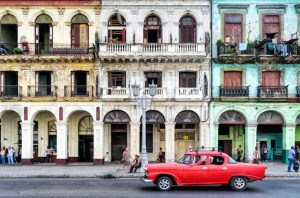For 20 years, Wendy Perrin covered consumer travel for Conde Nast Traveler magazine. For many readers, it was the first (and in some cases, the only) thing they read. Until, that is, a new editor pushed her column to the back of the book and gave her less space (apparently, you can't sell as many ads against good travel advice as you can features about the hottest new perfume to take on your trip). Not surprisingly, she packed up her desk and hit the road.
So when Ms. Perrin invited me and other journalists to a two-day summit in New York City, to which she invited hundreds of her favorite expert travel advisers (note: not travel agents), I flew from L.A. to learn from the mouths of her acolytes.
These people are specialists. Each has long experience concentrating on just one country or region. Some are Mexico specialists, others send travelers only to Cuba or specific areas of China. And Ms. Perrin herself offers free trip planning and advice to her web site's visitors.
So what did I learn?
One interesting takeaway: Cuba is the top destination that her readers have been asking questions about, with the U.S. in the second spot. The year before, the U.S. wasn't even in the top 10. Interpret that as you will--the most recent terrorist attack against tourists in the center of Istanbul might hold a clue--but the top googled travel question last year was "Where is Yellowstone?" (Answer: the nearest airports are Bozeman, MT and Jackson, WY).
But this should come as no surprise (just look at your Instagram or Facebook feed): Food and photography will be two top reasons people travel in 2016, so it follows that travelers are becoming more interested now in photographing food, even asking for food photography workshops. The new souvenir is a collection of new recipes and cooking skills.
And speaking of food, foodies increasingly want to experience both high and low: Michelin-starred restaurants one day, street food the next. (As a Mexico expert noted wryly, "We only direct them the the safest street food".)
Also interesting: a country's politics can give it terrible PR, as Mei Zhang of WildChina.com, related to me during a coffee break. When travelers read of Beijing apparently kidnapping publishers they disagree with, or cracking down on freedom of speech and assembly, they're less likely to support the regime by visiting. Similarly, pictures of dense pollution in Beijing, collapsing buildings and infrastructure, do a country no favors. Conversely, when a country cleans up its act, tourists will come. Colombia will see more travelers with children visiting in 2016, with coffee fanatics taking balloon rides to catch a glimpse of Juan Valdez country.
Our fascination with celebrity and media is playing out in our travel experiences: travelers are clamoring to visit places they see or read about in movies, TV shows, and books. "In the U.K. and Ireland alone, you can see sites related to Outlander, Game of Thrones, Harry Potter, Downton Abbey, MacBeth, Sherlock Holmes, Doc Martin, Dr. Who, and James Bond," says Jonathan Epstein, one of Ms. Perrin's "Trusted Travel Experts" for England, Ireland, and Scotland.
And you've been warned: the two biggest things that travelers wish they had paid more for on their trips are better food and better tour guides, so don't skimp. And "tour guides" will become a disparaged term, increasingly to be replaced by "local hosts"-- travelers will want to interact with expert locals rather than "guides"--an art expert who can introduce them to galleries and artists they'd otherwise never discover, for example. Anyone who has gone on a tour and been disappointed with a guide that drones on and on about nothing can relate.
More takeaways from Ms. Perrin's web site: The Future of Travel 2016: 10 Predictions.
Follow Wendy Perrin on Twitter @WendyPerrin
Follow me on Twitter @airfarewatchdog






